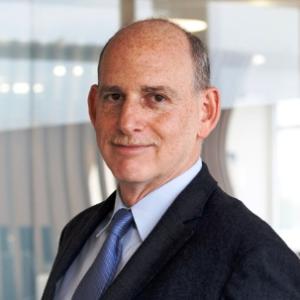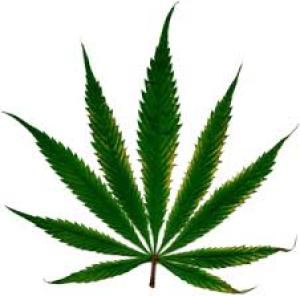This article was produced in collaboration with AlterNet and first appeared here.
The world's premier drug policy reform conference is set for next week in suburban Washington, DC. Hosted by the Drug Policy Alliance, the 2015 International Drug Policy Reform Conference will bring well over a thousand experts and advocates together beginning next Wednesday evening and going through next Saturday evening.

People will be attending from around the country and around the planet, and the conference will be covering international as well as domestic drug policy concerns.
This year's conference couldn't come at a more exciting and propitious time for drug policy reform: Marijuana legalization is on the march in the US and across the world, outrageous drug sentences in the US are starting to be undone, the UN General Assembly Special Session on Drugs is set for next year, the global prohibitionist consensus is crumbling, and a more enlightened future awaits -- if we can get there from here.
And that's what the conference is about: effecting change. Attendees will be hearing from experts not only in science, medicine, and law, but also from the activists and elected and appointed officials who have successfully made reform happen.
The conference will feature a live national town hall exploring the intersections between drug reform and the Black Lives Matter movement, documentary film screenings, tours of Washington, DC's drug war history, three dozen community-based sessions, and too many panels for any one human to attend in person. (thankfully, DPA will be recording all the sessions for future reference.)
Here's just a taste of what's in store:
Ensuring Inclusion, Repairing Damage: Diversity, Equity and the Marijuana Industry
- This roundtable will focus on how the war on drugs has harmed multiple generations through criminalization and mass incarceration. As marijuana legalization efforts move forward, who will control the industry and what will be the barriers to entry? Most importantly, how can the "green rush" be a road to repair for the traditionally marginalized and underserved?

- Despite marijuana's broad and growing social acceptance, marijuana law violations make up almost half of all drug arrests nationally. Because of this, marijuana legalization is often touted as the first step toward dismantling the war on drugs, but legalization advocates often distinguish the substance from other illicit drugs. With this in mind, how can marijuana legalization further the movement to decriminalize other drugs?
The Drug War and the Militarization/Bastardization of the Police
- Even though some communities have always known police brutality, issues of impunity of action and corruption are now touching upon the mainstream like never before. Supported by lawmakers and the judiciary, the police have become militarized and bastardized. What has caused the condoning of an ever increasing violent police force and how has the politics and violence of the drug trade and the drug war directly assisted with this phenomenon?
MDMA and Other Psychedelics: What Does Legal Access Look Like?
- We all agree that criminalization of all drugs needs to end, and marijuana legalization has provided one model for that. Public and political support for moving immediately to the same model for other drugs is low -- so in what other ways can we end criminalization and create legal access for MDMA and other psychedelic drugs? What would a medical model look like? Would a spiritual model using approved guides work for something like ayahuasca? What about licensing users or specific venues? And would any of these models show promise for drugs with addiction potential like cocaine, methamphetamine or heroin?
Reform For Those Who Sell Drugs: The Third Rail of Drug Policy Reform
- This roundtable will broach the subject of advocating for drug sellers. As we look to minimize the use of the criminal justice system where drug policy is concerned, how do we distinguish the drug dependent subsistence dealer and the more common mid-level drug dealer who's not dependent? Does compassion and the public health approach extend to those who sell drugs?
The Future of Digital Spaces, Drug Sales and Drug Policy
- Shutting down the Silk Road and sentencing Ross Ulbricht to life in prison not only failed to end global online drug transactions, but actually led to having more digital drug marketplaces today than ever before. Join leading experts to discuss the benefits and risks of this new model of drug sales and how they can be used to help end the war on drugs.
Supervised Injection Facilities
- Supervised injection facilities (SIFs) have been a crucial part of harm reduction initiatives allowing people to consume illicit drugs in a supervised, often clinical space. However, questions remain concerning the advantages SIFs offer and their role in addressing the HIV epidemic among people who use drugs. This session will cover campaigns and strategies, both in the United States and internationally.

- From Bob Dylan to Nina Simone, Paul Robeson and Harry Belafonte, successful American artists have traditionally played a leading role in addressing social and political issues of their time. Have political activism and America's pop culture parted ways? If the criminal justice system is today's civil rights issue, what will it take to engage a cadre of pop artists who fully embrace art as politics?
Criminalized, Marginalized and "Othered": Lessons and Strategies for Fighting the Drug War in Hard Places
- This roundtable will focus on the diverse demographics among drug users. From pregnant women to individuals in LGBT circles and HIV-affected communities, what strategies are working and what can our movement learn about organizing with criminalized, marginalized and transient constituencies? How do we build a more robust movement that addresses the challenges and concerns of those least visible and most vulnerable to drug war policies?
What Does Drug Education and Prevention Look Like in the Age of Marijuana Legalization?
- Despite successful marijuana legalization campaigns in Colorado, Washington, and the District of Columbia and California's potential legalization vote in 2016, the rhetoric of "Reefer Madness" type messages are being renewed even though recent studies show that teen marijuana use is falling as more states legalize it. This discussion will bring together drug education and prevention experts to highlight the current research findings and map out a path for effective drug education and prevention in the age of legalization.
United Nations: What's the Opportunity?
- The UN General Assembly Special Session (UNGASS) on Drugs is less than a year away. This gathering presents an immense opportunity to build international momentum to end the war on drugs and highlight countries that have taken significant steps in implementing sensible drug laws. This roundtable will focus on the set of "outside game" strategies taking place and ways in which UNGASS can advance the drug policy movement's common agenda.
Are the Party Kids Any Safer Yet? EDM Festivals, the Music Industry and Harm Reduction
- Festival event producers are in a tough spot: always trying to balance demands for "zero tolerance" drug-free events versus trying their best to prepare for attendees who will use drugs. How are festivals starting to integrate drug education and onsite harm reduction services to keep their attendees safe? What challenges and limitations still remain? Will a national effort to change federal RAVE Act legislation clear the path? What more could be done?
E-Cigs and the Future of Maintenance Therapies
- Electronic cigarettes have been the center of considerable controversy between those who see them as a public health threat and those who see them as a valuable harm reduction tool. This roundtable will discuss e-cigs as an alternative source of nicotine for those who c annot or will not quite smoking traditional cigarettes and whether these devices could herald a new era of maintenance therapies or a new era of cracking down on them.
See you there!
This work by StoptheDrugWar.org is licensed under Creative Commons Attribution-ShareAlike 4.0 International
Comments
Oppression
Many beings, 2 and 4 legged look to naturally change their minds and enjoy different states of consciousness.
The magic plants are here for that. What can be more personal?
It is the grossest of oppression for a group to forbid this, then build cages to end a persons physical freedom as well as mental.
America is no longer the "Land of the Free". It is the "Land of Incarceration" without any doubt.
The DEA is the army of occupation and oppression. The "Brain Police."
Add new comment